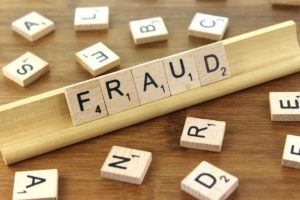Forgery and Fraud
Forgery and Fraud
If you are charged with fraud, or forgery in Orange County, our Forgery and Fraud Criminal Defense Attorneys can help.
When you require serious criminal defense representation for crimes such as forgery and fraud, you can trust in our firm. Our Orange County criminal defense attorney Robert Miller has over 29 years of experience that can be utilized to help your case. We are Forgery and Fraud Criminal Defense Attorneys, and we can help.
Forgery Law – Penal Code PC 470
Forgery is one of the oldest crimes in history. Using the seal or signs of royal authority, forge fake coins, or forge stamps or wax seals was illegal. California law makes forgery a crime under Penal Code PC 470. That law makes it illegal to knowingly alter, make, or use any written document with the intent to commit any fraud. The law also further breaks down, by subsections, certain specific types of forgery:
Forgery in signing someone else’s signature
(a) Every person who, with the intent to defraud, knowing that he or she has no authority to do so, signs the name of another person or of a fictitious person to any of the items listed in subdivision (d) is guilty of forgery.
Forgery of a seal or handwriting
(b) Every person who, with the intent to defraud, counterfeits or forges the seal or handwriting of another is guilty of forgery.
Forgery in presenting a false will, codicil, property conveyance of someone else’s signature
An Orange County wills and trusts attorney can create and verify a will or codicil. But the law makes falsifying any of those documents illegal, stating as follows:
(c) Every person who, with the intent to defraud, alters, corrupts, or falsifies any record of any will, codicil, conveyance, or other instrument, the record of which is by law evidence, or any record of any judgment of a court or the return of any officer to any process of any court, is guilty of forgery.
Forgery of a check, receipt, or document
(d) Every person who, with the intent to defraud, falsely makes, alters, forges, or counterfeits, utters, publishes, passes or attempts or offers to pass, as true and genuine, any of the following items, knowing the same to be false, altered, forged, or counterfeited, is guilty of forgery: any check, bond, bank bill, or note, cashier’s check, traveler’s check, money order, post note, draft, any controller’s warrant for the payment of money at the treasury, county order or warrant, or request for the payment of money, receipt for money or goods, bill of exchange, promissory note, order, or any assignment of any bond, writing obligatory, or other contract for money or other property, contract, due bill for payment of money or property, receipt for money or property, passage ticket, lottery ticket or share purporting to be issued under the California State Lottery Act of 1984, trading stamp, power of attorney, certificate of ownership or other document evidencing ownership of a vehicle or undocumented vessel, or any certificate of any share, right, or interest in the stock of any corporation or association, or the delivery of goods or chattels of any kind, or for the delivery of any instrument of writing, or acquittance, release or discharge of any debt, account, suit, action, demand, or any other thing, real or personal, or any transfer or assurance of money, certificate of shares of stock, goods, chattels, or other property whatever, or any letter of attorney, or other power to receive money, or to receive or transfer certificates of shares of stock or annuities, or to let, lease, dispose of, alien, or convey any goods, chattels, lands, or tenements, or other estate, real or personal, or falsifies the acknowledgment of any notary public, or any notary public who issues an acknowledgment knowing it to be false; or any matter described in subdivision (b).
Forgery – what needs to be proven?
At a trial, the jury instruction requires that the prosecution proves, beyond a reasonable doubt, the following elements of the crime forgery:
To prove that the defendant is guilty of this crime, the People must prove that:
1. The defendant (passed[,]/ [or] used[,]/ [or] (attempted/ [or] offered) to use) [a/an] (false[,]/ [or] altered[,]/ [or] forged[,]/ [or] counterfeited) <insert type[s] of document[s] from Pen. Code, § 470(d)>;
2. The defendant knew that the <insert type[s] of document[s] from Pen. Code, § 470(d)>(was/were) (false[,]/ altered[,]/ [or] forged[,]/ [or] counterfeited);
AND
3. When the defendant (passed[,]/ [or] used[,]/ [or] (attempted/ [or] offered) to use) the <insert type[s] of document[s] from Pen. Code, § 470(d)>, (he/she) intended that (it/they) be accepted as genuine and (he/she) intended to defraud.
Forgery – what are the defenses to forgery?
- Lack of intent: This is one of the major defenses for all types of forgery, as the prosecutor must prove that the suspect “intended” to commit the crime. Sometimes proving what was in someone’s mind at the time is difficult.
- Permission: This defense involves the true owner of the document giving the person charged permission to sign their name.
- Lack of passing of the item: Because one of the elements of the offense is the forged is “passed” or “uttered” to another person, there has to be an attempt to present the forgery somewhere. A mere writing of the document is not a completed forgery.
Forgery – what is the punishment for forgery?
Forgery is a crime that can be charged as a misdemeanor or a felony. The prosecutor will base their decision on the value of the item that was forged. Forgery of a check, bond, or bill worth up to $950, will be charged as a misdemeanor. If the value exceeds $950, it will likely be a felony charge. Felonies can mean up to three years in prison, restitution, and a fine of up to ten thousand dollars maximum. Misdemeanors are one year or less in jail, all the way down to zero, and fines of $1,000 or less, plus restitution paid back to the victim.
Under Penal Code section 473, forgery convictions are punishable as misdemeanors or felonies. A Southern California felony conviction can mean up to three years in jail, a ten thousand dollar fine, and payment of restitution to the alleged victim. A misdemeanor conviction can mean one year in jail, a one thousand dollar fine, and similar restitution.
How can a forgery defense attorney help?
An Orange County Forgery defense attorney can help assert your defenses. The best Orange County criminal defense lawyers will review the case for elements that cannot be proven, plan a strategy for motions to dismiss or a motion to suppress evidence and present all defenses in court.
According to Timothy A. Scott, criminal defense attorney in San Diego, there are a number of reasons it’s important to hire a forgery defense attorney in California: “Forgery cases can be quite complex, and having an attorney with courtroom experience is helpful. They will be able to present your case to the judge or jury, cross-examine the witnesses against you, and argue on behalf of your case. Meanwhile, your lawyer can analyze your case in detail, considering the evidence against you, and then formulate a defense that precisely pertains to your case. This may include, but is not limited to, challenging evidence presented for validity, offering alternative explanations, or even negotiating with prosecutors.”
Fraud laws – California Penal Code
California has an extremely large number of categories of fraud laws, which are organized as follows under the law as follows:
Fraud Offenses under Specific California laws
- Internet fraud in California and under California’s fraud laws (Penal Code 530.5)
- Handicapped parking fraud under California law (Vehicle Code VC 4461)
- Laws against fraudulent vehicle registration stickers under California law (Vehicle Code VC 4463)
- Gambling fraud in California (VC 332)
- Mail fraud in California under US Federal law (18 United States Code (U.S.C.) § 1341)
Elder Fraud Laws in California
- Senior citizen fraud in California – Penal Code sections 368(d) and 368(e)
- Nursing home fraud under California laws (Penal Code 530.5)
Financial Fraud Laws in California
- Check fraud in California (Penal Code 476)
- Credit card fraud in California (Penal Code 484)
- Securities fraud in California (Corporations Code 25540 and 25541)
Insurance Fraud Offenses in California
- Automobile insurance fraud in California (Penal code section 594, etc.)
- Health care insurance fraud in California (Penal Code 550)
- Medi-Cal insurance fraud in California (W&I 14107)
- Unemployment insurance fraud in California (Insurance Code 2101)
- Welfare fraud in California (Welfare and Institutions Code 10980)
- Workers’ Compensation fraud in California (Insurance Code 1871.4 )
Real Estate & Mortgage Fraud Offenses in California
- Foreclosure fraud under California law (Civil Code 2945)
- Laws against forging deeds in California (Penal Code 115)
- Predatory lending schemes under California law (Penal Code 489)
- Rent skimming laws in California (Civil Code 890)
- Straw buyer fraud in California (Penal Code 489)
Forgery and Identity Theft Laws in California
- Laws against forging, counterfeiting or possessing a fraudulent public seal in California (Penal Code 470, see above)
- Laws against forging or counterfeiting a driver’s license or ID card in California (Penal Code 470, see above)
- False personation law in California (Penal Code 470(a), see above)
Fraud – what needs to be proven?
In general, fraud has to show the following elements, plus meet the definition of the type of fraud, as described by the type of fraud, above:
- A deception, or misrepresentation, usually through a false representation, concealment, or nondisclosure;
- Knowledge of the misrepresentation or deception;
- The intent to deceive or commit the fraud; and
- A gain of some type to the person accused.
What are the defenses to criminal fraud under California law?
Defenses may include any of the following:
- Insufficient proof – The prosecutor, which in Orange County is the OC District Attorney’s Office consumer protection division, has the burden of proving every element under the law that fraud was committed. Any missing element or any element that cannot be proven means the fraud case cannot be proven.
- The absence of an intent to commit a crime – Fraud includes as an essential element the intent to deceive. As a result, a fraud conviction requires the intent to deceive has to be proven. If the intent is not proven, the fraud charge can be dismissed because of insufficient evidence.
- Statements that are not Fraudulent: Not all statements are considered fraudulent. To constitute fraud, a misleading statement needs to relate to an existing fact, and not promises, or speculation, about the future. Expressions of opinion are not considered to be fraud. This creates a defense to fraud.
- Entrapment – Entrapment occurs when the police or other parties compel an innocent person to commit a crime they would not have otherwise committed.
How can Forgery and Fraud Criminal Defense Attorneys help?
If you have been charged with fraud, our top Orange County criminal defense lawyer is ready to help you fight for your rights. Our criminal law firm can work to prepare an effective defense on your behalf with the ultimate goal of receiving a reduction, or complete dismissal, of your charges.
Contact us today.
Contact us today. At Miller & Associates, our top rated Orange County Criminal Defense attorney Robert Miller is dedicated to helping individuals who have been wrongfully accused of forgery or fraud. We understand the lasting effects that a conviction can have on someone’s life, which is why we tirelessly work to find an effective defense strategy for fraud, or forgery, charges.




